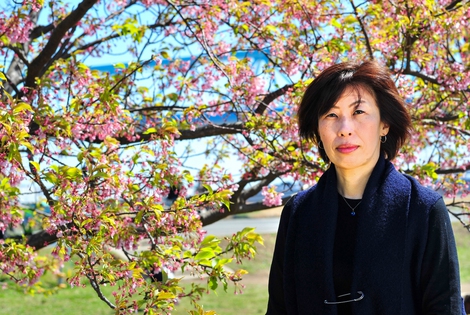
Three people putting the protection of the planet before themselves. Three powerful stories from Latin America, the deadliest region for environmental activists.
Tanzanian activist, community leader and Maasai tribe member Edward Loure won the Goldman Environmental Prize for Africa in April 2016 for his efforts securing the land rights of Tanzanian indigenous people. For years he has been fighting to demonstrate that native people are good stewards of the land and local ecosystems. The Goldman Prize is the
Tanzanian activist, community leader and Maasai tribe member Edward Loure won the Goldman Environmental Prize for Africa in April 2016 for his efforts securing the land rights of Tanzanian indigenous people. For years he has been fighting to demonstrate that native people are good stewards of the land and local ecosystems. The Goldman Prize is the biggest annual global award for grassroots environmental activists, selected from six regions.
Read more: Maasai evicted from their lands to make space for trophy tourism in the Serengeti
Indigenous pastoralist communities of hunter-gatherers in northern Tanzania have been living off the land for 40,000 years, sustainably coexisting with local wildlife and protecting the ecosystem. However, in the past decades government policies have led to the selling of local land – officially unclaimed and perceived as empty – for tourism or commercial purposes.
However, much of this land has been occupied by indigenous communities, like the Maasai and Hadzabe, for generations. And as land availability decreases, a growing number of indigenous communities have lost their land, lifestyle and homes.
Edward Loure, 44, is the Programme Coordinator for the Simanjiro District (in northern Tanzania’s Manyara region) with non-profit Ujamaa Community Resource Team (UCRT). “The main problem for the pastoralist communities is land grabbing. As I grew older I noticed that our herding land was shrinking drastically due to illegal farming, tourism and development,” he says.
Loure, thanks to the help of the communities and the UCRT’s legal team, adopted an unprecedented approach to documenting land rights. This was to use a local provision, the Certificate of Customary Right of Occupancy (CCRO). Though originally meant to manage individual land rights, it was adapted to formalise land rights for Maasai and Hadzabe communities.
“Through lobbying the government and preparing all documentation on the property, we achieved ownership of our lands,” Loure explains. After nearly a decade of work, more than 220,000 acres of land for the two communities have been secured.
Loure’s inspiring work has led other indigenous groups to use the same method to secure their land. He’s currently working on fourteen additional CCROs to protect more than 370,000 hectares of land in the same area, hoping that his story will increase global awareness and support for land rights in Tanzania.
Siamo anche su WhatsApp. Segui il canale ufficiale LifeGate per restare aggiornata, aggiornato sulle ultime notizie e sulle nostre attività.
![]()
Quest'opera è distribuita con Licenza Creative Commons Attribuzione - Non commerciale - Non opere derivate 4.0 Internazionale.
Three people putting the protection of the planet before themselves. Three powerful stories from Latin America, the deadliest region for environmental activists.
Influential scientist, activist and author Vandana Shiva fights to protect biological and cultural diversity, and against GMOs.
Kimiko Hirata has blocked 13 new coal plants in Japan, but she hasn’t done it alone. The 2021 Goldman Prize winner tells us about her movement.
The Goldman Environmental Prize, the “green Nobel Prize”, is awarded annually to extraordinary activists fighting for the well-being of the planet.
A special report from the Yuqui territory delves deep into the dreams, challenges, joys and sadness of one of Bolivia’s most vulnerable indigenous groups.
The Yuqui people of the Bolivian Amazon fight not only to survive in the face of settlers, logging and Covid-19, but to preserve their culture and identity.
We talk to Shaama Sandooyea, activist and marine biologist from Mauritius onboard Greenpeace’s Arctic Sunrise ship in the heart of the Indian Ocean.
Jair Bolsonaro is accused of crimes against humanity for persecuting indigenous Brazilians and destroying the Amazon. We speak to William Bourdon and Charly Salkazanov, the lawyers bringing the case before the ICC.
Arrested for supporting farmers. The alarming detention of Disha Ravi, a 22-year-old Indian activist at the fore of the Fridays for Future movement.







